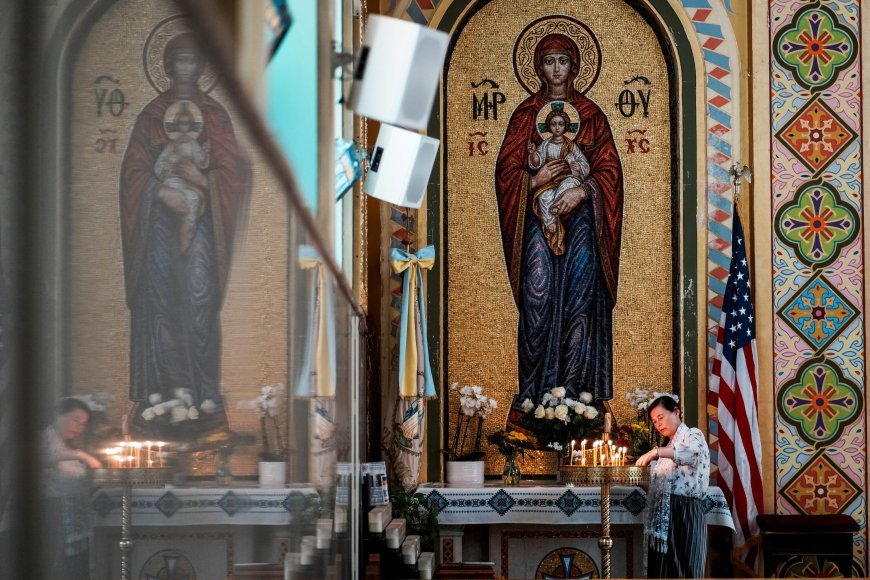Just under half of LGBTQ people in the United States are religious — a stark contrast to the two-thirds of non-LGBTQ people who say they are religious, according to a new
Pew Research report.
The report, which draws from a 2024 survey of 10,658 adults as well as Pew Research Center's 2023-24 Landscape Study, found that 73% of non-LGBTQ people identify with a religion, compared to just 48% for LGBTQ individuals. Furthermore, 42% of non-LGBTQ people said religion is very important in their lives — again far higher than the 17% of LGBTQ individuals who answered that way. And 46% of non-LGBTQ people pray daily, compared to just 23% of LGBTQ people.
A majority of LGBTQ adults, 52%, are not affiliated with any religion — twice as high as the 26% of non-LGBTQ people who say they are affiliated with a religion. Those who are religiously unaffiliated include those who identify as atheist, agnostic, or "nothing in particular."
While 42% of non-LGBTQ people say religion is very important in their lives, only 17% of LGBTQ people share the same feeling, with 58% of LGBTQ people saying religion is not too important or not important at all.
Unsurprisingly, given the historic tendency to use religion as a tool to justify anti-LGBTQ discrimination, the research also found that far more lesbian, gay, or bisexual individuals — 46% — believe religion does more harm than good in society. Just 17% of non-lesbian, gay, or bisexual people believe religion does more harm than good — and, in fact, they believe quite the contrary: 47% of non-lesbian, gay, or bisexual people believe religion actually does more good than harm.
Relatedly, 35% of lesbian, gay, or bisexual respondents believe churches and religious organizations protect and strengthen morality in society — just a fraction of the 67% of non-lesbian, gay, or bisexual people who believe churches and religious organizations bolster morality in society. Among lesbian, gay, and bisexual respondents, 80% believe churches and religious organizations are too concerned with money and power, 79% believe they focus too much on rules, and 78% believe they are too involved in politics.
Other areas, such as spirituality, indicate different results, with 80% of lesbian, gay, and bisexual people believing that "people have a soul or spirit in addition to their physical body." Meanwhile, 69% believe "there is something spiritual beyond the natural world, even if we cannot see it." Among lesbian, gay, or bisexual adults, 64% said they believe in God or a universal spirit, though that number is still far less than the 85% of other Americans who responded that way. Among non-lesbian, gay, or bisexual people, 32% are "very spiritual" — similar to the 27% of LGBTQ people who are in that category.
Last year, a
survey published by the Public Religion Research Institute found that the share of individuals who consider themselves to be religiously unaffiliated rose from 5% in 2013 to 26% in 2023. That survey also found that 67% of religiously unaffiliated Americans no longer identify with their childhood religion and 47% of religiously unaffiliated individuals say anti-LGBTQ teachings are an important reason why they no longer identify with their childhood religion. Among LGBTQ individuals who are religiously unaffiliated, 73% no longer identify with their childhood religion due to anti-LGBTQ teachings.


 Mark
Mark 





